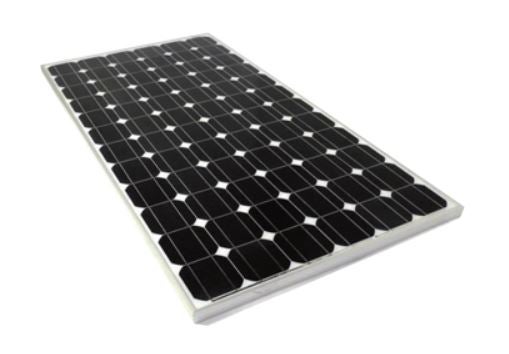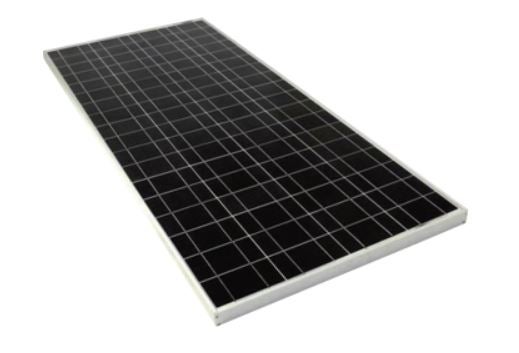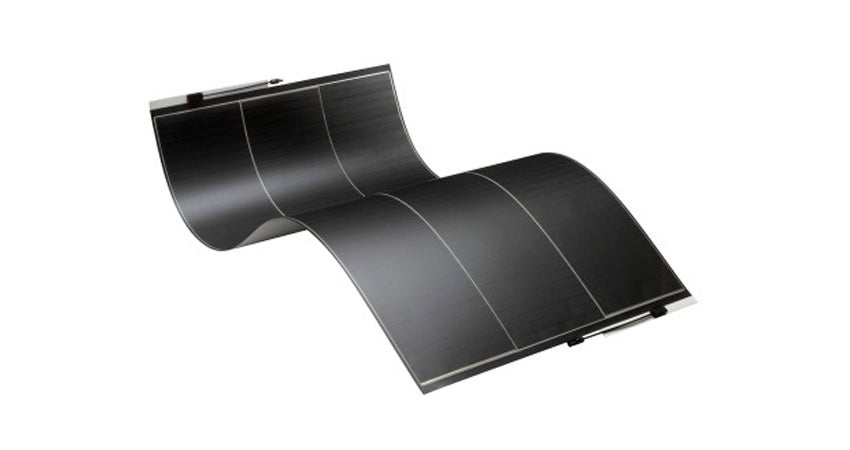Three Types of Solar Panels
There are 3 main types of solar panels used in commercial and residential solar systems, and each has its pros and cons. The type of solar panel you choose will be determined by many factors including; cost, efficiency, aesthetics, and usable roof space. Here’s a description and breakdown of each of them.
Monocrystalline Solar Panel

Polycrystalline Solar Panel

Thin Film Solar Panel

Monocrystalline solar panels are usually the highest efficiency panels due to the process in which they are made. They are also the oldest of the 3 types of solar panels, and most developed. Made of silicon wafers, assembled into rows and columns to form a rectangle. You will notice that the corners of each silicon wafer have been rounded off to increase it’s efficiency. The cells are more of a black color, due to the pure silicon crystal.
Monocrystalline panels do cost more to produce than polycrystalline panels, so they are usually more expensive to purchase. They do tend to last longer and come with longer warranties also.
| Pros | Cons |
|---|---|
| High Efficiency
Aesthetics |
Higher Cost |
Polycrystalline solar panels will tend to have a bluish hue to them due to the way light refracts of the silicon fragments in a cell. And unlike the Monocrystalline cells, these are a perfect rectangle without cut corners. Polycrystalline cells are not as heat tolerant or efficient as the monocrystalline cells. This means they don’t make as much electricity when the sun shines.
Due to the diffrence in the manufacturing process, polycrystalline panels tend to be a little less in price than monocrystalline panels. This balances out for with giving up a little in the efficiency area.
| Pros | Cons |
|---|---|
| Low Cost | Lower Efficiency |
Thin film solar panels best attribute is in their aesthetics. As their name states, they are very thin and low-profile. Thus is due to the fact that the cells are about 350 times thinner than the crystalline cells. This allows for a wider variety of uses, including RVs, boats, and campers to use them. They come in both black and blue colors, depending on how the cells were made.
Thin film panels will have a lower efficiency and power capacity than poly or monocrystalline panels. It is also cheaper to install a thin film panel as it is less labor intensive.
| Pros | Cons |
|---|---|
| Flexible and Portable
Lightweight Aesthetics |
Lowest Efficiency |
The Best Type of Solar Panel
Every situation is different, and can best be approached by a different type of solar panel. If your residential property has plenty of roof space, the best choice may be polycrystalline solar panels. If you have less available space, monocrystalline solar panels may be your best option. The best panel for your installation is best determined by sitting down with an expert that understands your wants, goals, and budget. They will analyze the situation give you options, meet your goals, and stay within your budget. Our experts at American Sentry Solar will give you guidance and support to determine the right solar panels for your project.
Claim Your Free Solar Analysis Today!
